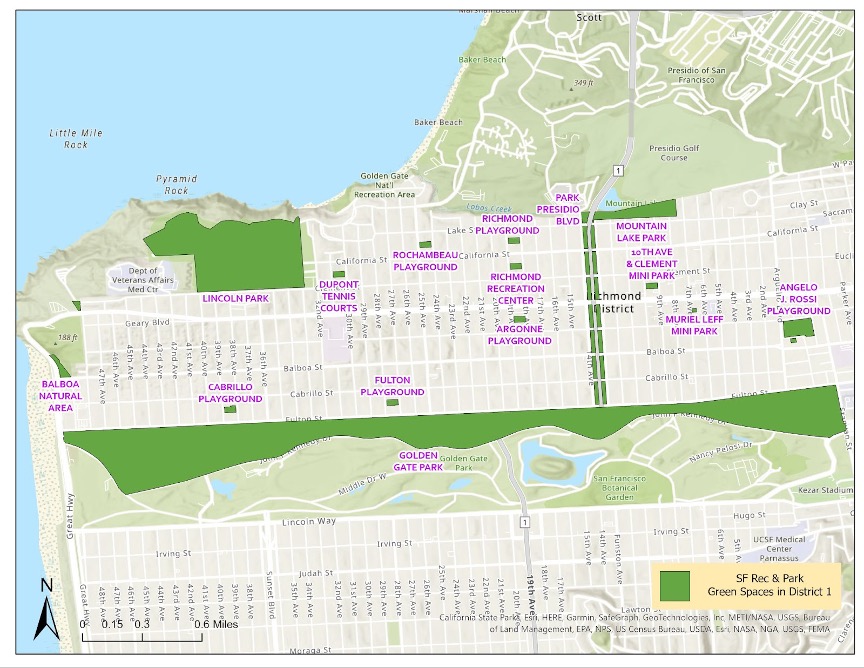Urban Green Space Accessibility and Seniors’ Quality of Life in San Francisco

Abstract
The impacts of urban green space accessibility on seniors’ quality of life is the subject of a growing body of literature that underscores physical and mental health benefits. Building on theories of environmental justice, this thesis investigates the impacts of urban green space accessibility on seniors’ quality of life, specifically physical and mental health, based in San Francisco’s Richmond District. The thesis also focuses on seniors’ preferences for green space safety and the surrounding built environment, as well as the influence of race/ethnicity and socioeconomic status. Results of this study show that pain, general health, emotional well-being, and energy/fatigue are some of the leading physical and mental health domains that influence seniors’ health-related quality of life. Study participants reported that traffic, air quality, and distance to green space are their top three considerations of the surrounding built environment. Paths with clear lines of sight, good lighting, and security technology are their top three important green space safety features. Race and socioeconomic status were found statistically insignificant to urban green space accessibility and health. Future research should continue to explore how urban green spaces impact seniors’ physical and mental health in combination with implementing measures of park proximity and park quality over a larger sample population representative of San Francisco’s senior population to test if findings can be generalized.